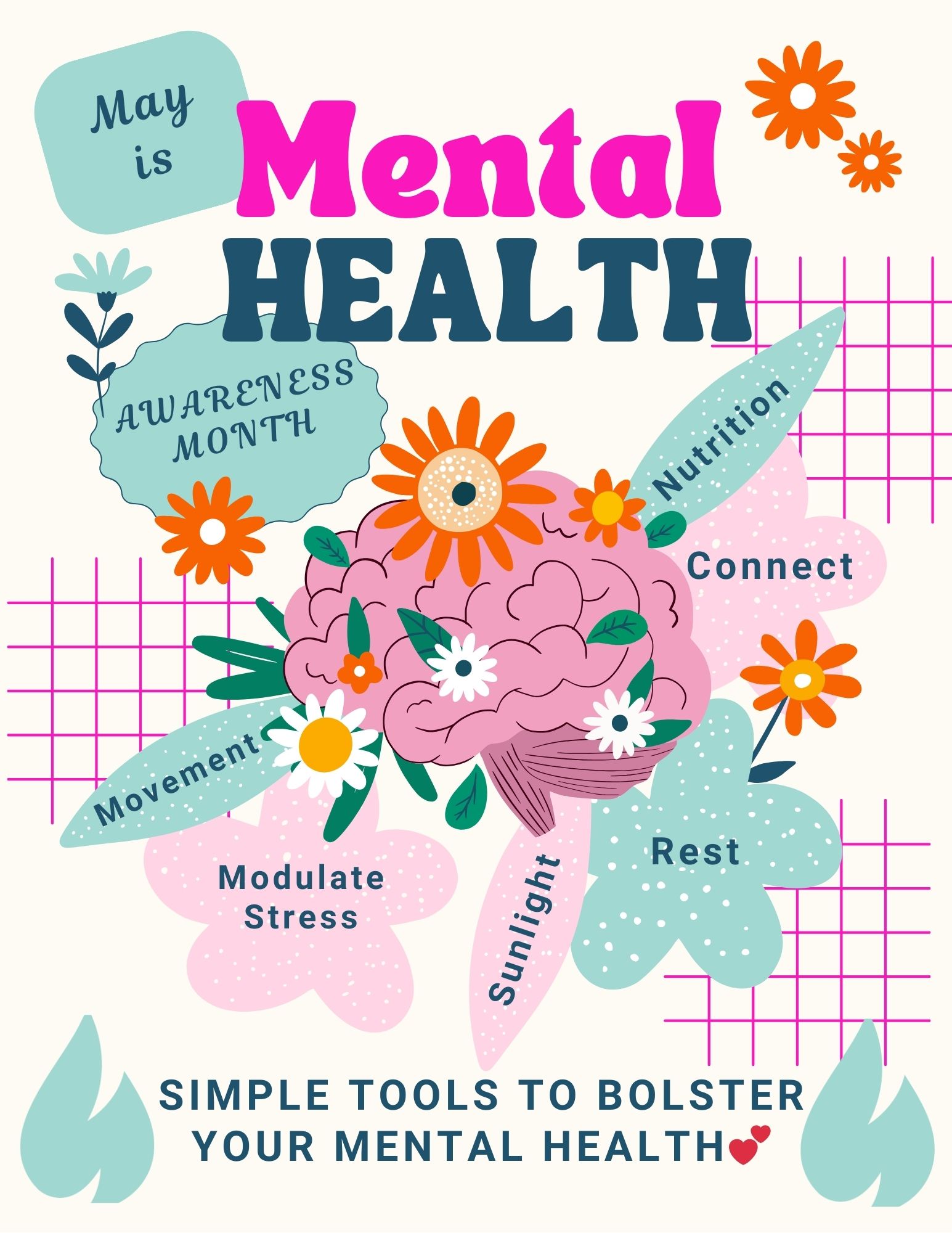MOVEMENT AND MENTAL HEALTH
Movement and exercise can have significant impacts on mental health including reducing symptoms of depression and anxiety, improving mood, and enhancing cognitive function.
Physical activity on the regular can release endorphins, boost self-esteem and provide a health coping mechanism for stress. At the Studio, we’ve also found that working out in a supportive, fun community of people with the common goal of being healthy for a lifetime goes a long way too.
Other ways to improve your mental health AND boost your fitness outcomes*:
Light & Dark Exposure– Morning sunlight (low solar angle) or artificial light as early as possible for 10 minutes. Darkness for 6-8 hours/night for circadian rhythm.
Nutrition– Food as close to source as possible (minimal processing). Eat 3 meals a day with mostly veggies, protein and carbs. Hydrate!
Sleep– 6-8 hours a night of quality sleep; give yourself a wind down period, try to go to sleep at about the same time every night (within +/- 1 hr)
Social Connection- regular social connections that elevate mood (group fitness!)
Modulating Stress- Breath work, meditation, non-sleep deep rest (NSDR) are tools that can be effective at calming the swirling thoughts of the mind.
*From Huberman Mental Health Toolkit
Read more about movement and mental health in our May 2025 Newsletter
If you or someone you know is struggling with mental health issues, it’s important to reach out for help and support. Speaking to a mental health professional, counselor, or trusted individual can be the first step towards getting the assistance needed to manage mental health challenges effectively. If you or someone you know may be considering suicide, contact the 988 Suicide & Crisis Lifeline by dialing or texting 9-8-8.

